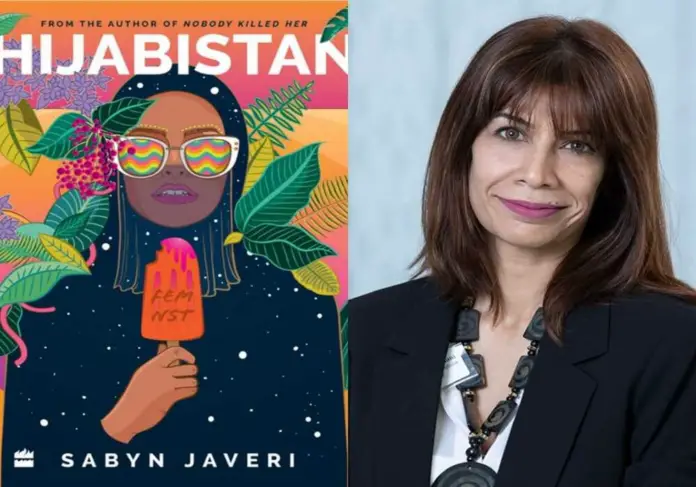The year 2021 has been a year of extremism of all kinds; from mob lynching and vandalism to baseless fatwas and further reinforcement of patriarchal values. Pakistan has had its fair share of rigidity, which unfortunately and ironically as well, continues to grow each year, showing no signs of peace and tolerance in near future.
Amidst these chaotic times, artists with their sensitive dispositions always promise empathy, and it is for this very reason that for 2022, I have chosen Dr. Sabyn Javeri as a creative writer who needs to be read and understood in hope of acceptance of diversity. Javeri, an Oxford graduate, an award-winning short story writer and a novelist who divides her time between writing and teaching in Pakistan as well as in the west, is someone whose works of fiction lay emphasis on understanding humans as they are, and not as we, with our limited knowledge of human psychology, want them to be. Her works oscillate between realism and idealism, starting with how our society works, and ending at how it should work. The most important work of Sabyn Javeri in this regard is her collection of short stories titled ‘Hijabistan’, a thorough and careful erudition of which makes us understand that unlike what many may assume, ‘Hijabistan’ is not at all a jab at women who wish to cover themselves, but at the Pakistani society as a whole which tries to keep everything unexposed, especially people’s basic human desires and their sexualities, which becomes the root cause of frustration.
In this article, I choose two stories by the author from the book – ‘The Urge’ and ‘Malady of the Heart’ to make readers understand why Sabyn Javeri is a must-read in order to understand the disastrous effects of keeping humans caged within defined social structures. ‘The Urge’ is a story in which two young women, a girl and her under-aged yet married aunt are made to cover themselves from head to toe because that is what the society demands from them once they reach adolescence. Young and passionate, the two women find solace in each other’s company not only for their similar age brackets but also for their limitations as Pakistani women. Having suffered rigid patriarchal values and a confinement at relatively younger ages, the two women begin with consideration for each other and go to the extent of developing an intimate relationship. At this point, their ‘urge’ to be themselves is once again put to a halt, with the aunt getting beaten up by her husband and the niece being wed to an incompatible man from the neighbourhood.
The neighbour-husband’s possession for his young wife materializes in the way that he starts locking up his house every time he leaves for work. It is in these very confines that she gives birth to her baby girl, whom she strangles to death to the horror of the readers. Nonetheless, this act on her part does not find its space in the narrative without logic. The act of strangling a baby girl to death, if read consciously, stems from the fear of nurturing a girl who too, like her mother, will have to surrender before a lifestyle as defined by the society. By the time this story comes to an end, the reader, even if at an individual level, feels the need to make a change, especially in terms of how women are dealt with. Be it their way of dressing up, their choice of a life partner or their preference of one sexual orientation over another, they need to be allowed to live the lives they want, lest more murders of infants take place in fear of the unbearable limitations and suffocating values of a patriarchal society. The story may end at a very heart-wrenching and disappointing note, but leaves a message for the reader to take a step to stop such disturbing acts from taking place by letting women, or people in general, be themselves.
The second story by Sabyn Javeri, which is under consideration for this article, is ‘Malady of the Heart’ which, as its title suggests, focuses on how humans need to listen to their hearts and their fellow humans need to understand them instead of imposing societal norms on them.
‘Malady of the Heart’ is a story of a woman who wishes to walk out of her marriage, because that is what her heart says. She has had her fill as a married woman, and having experienced the institution, she now wishes to have a closer look at the world beyond marriage; a world full of research, experimentation and adventure, promising fun, thrill, and education yielding practical results. However, in a society which considers marriage the ultimate goal of life, the protagonist is not understood, but is instead, taken to spiritual healers with the thought that she might have been cursed, otherwise how can a woman even think about waking out of her marriage and leaving her husband. That her heart is no more in the relationship is something which the family doesn’t understand, and therefore keeps telling her that this is not how the ‘society’ works. The reason why ‘Malady of the Heart’ emerges as an important story is because it makes the readers understand that people’s willingness has more to do with making a relationship work, instead of the mere idea that two strangers have to be wedded to each other at any cost because there is nothing more important than marriage in our part of the world. Javeri, through this story, refutes the South Asian notion of ‘love comes after marriage’ and focuses on the fact that love has to be there in the first place to make a marriage work, and once it’s not there, it’s better to walk out instead of making multiple lives miserable as a result of forced togetherness.
It is also important to mention that nowhere in the stories does the author force these ideas, but it is only through actions on the part of her characters that she makes us understand how miserable and hopeless they are under circumstances imposed upon them without their willingness. Sabyn Javeri’s stories are not sermons, but are hard-hitting narratives which stimulate the reader to bring a change, not as a result of being preached, but as a result of being made to empathize with unhappy characters who have no authority over their heart and soul. With the new year that has just commenced, it becomes important for Pakistani readers to go through the works of this Karachi-born creative writer for a better understanding of the variety of human natures present around us, and make this country a better place for those who may not necessarily have been born with a disposition the society deems perfect and thus allowable.







